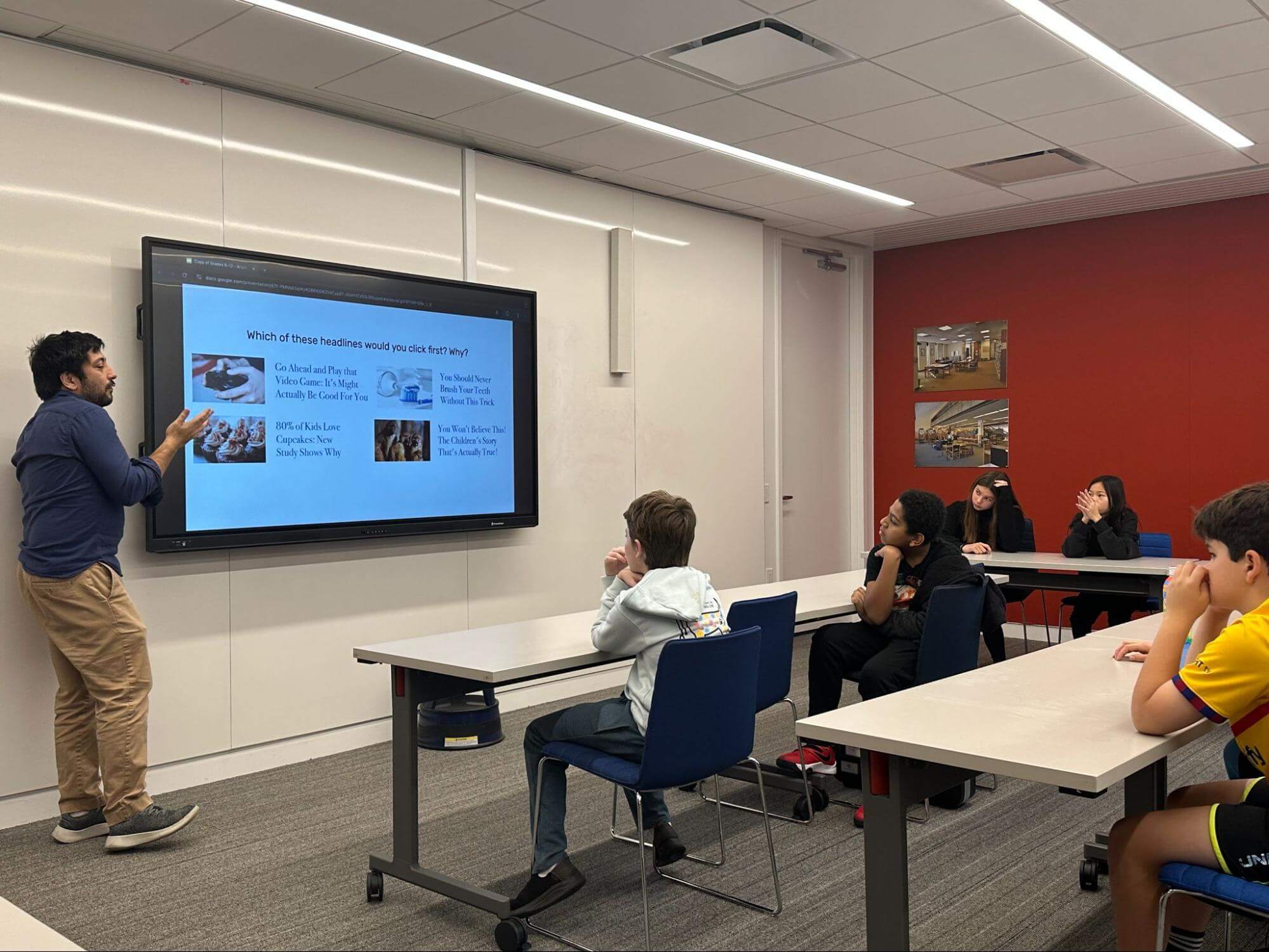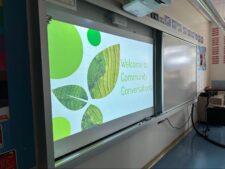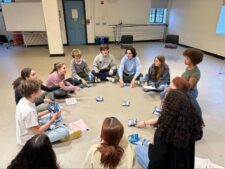As 6th Graders discover the resources available to them as new middle schoolers, it’s essential that they also familiarize themselves with the Tate Library and its archives of print and digital books, databases, and streaming outlets. Equally important is learning how to utilize these resources responsibly and ethically. In Fieldston Middle’s 6th Grade Library Skills class, students develop the skills needed to navigate the space as ethical researchers in an increasingly digital world.
“The Tate Library is a 6th–12th Grade library, and for many 6th Graders, this is their first time using a research library,” says Tate Librarian Katie Elwood. “The goal of Library Skills is to give 6th Graders the opportunity to get to know the librarians, to get them comfortable in the space, to provide an introduction of what the Tate Library offers, and explain why libraries are important.”
The work equips students with critical media literacy skills that primarily focus on determining the reliability of both digital and non-digital information. 6th Graders are taught what they will need for a lifetime of research, including navigating the library system, what makes a quality source of information, and how to use that information ethically. While Elwood and fellow librarians Cornelia Locher and Mandy Colgan lead lessons on censorship and the First Amendment, they also partner with Assistant Director of Academic Technology Felipe Cocco to discuss the ethical uses of technology and the spectrum of misinformation.

“A big part of what Library Skills does is make 6th Graders aware of both print and non-print resources and the benefits and limitations of different types of information,” Elwood says. “This class introduces skills that will build shrewd lifelong technology users who will think critically about all information.”
“This is a fun class, and I’ve learned a lot about the library and how it works,” Cecilia H. ’31 says.
A recent lesson with Cocco explored common examples of the misinformation 6th Graders may face when working on a research project and sorting through possible sources. To learn how to identify clickbait, students analyzed a list of different article titles and discussed which were the most enticing to them. They then looked at examples of YouTube video thumbnails and how they could be misleading to an uninformed audience. The class also studied artificial intelligence, comparing authentic and altered images and ways to identify the non-altered version.
“If you’re doing library science correctly, you should be a competent consumer of knowledge that exists in the world,” Cocco says. “Part of that nowadays must include being a competent consumer of all of this new media and understanding the mechanics that are behind it.”

Students also discuss with the librarians how a changing media and cultural landscape affects the books in their local libraries. During a lesson on censorship, 6th Graders learned about the difference between banned and challenged books and the history of Banned Books Week. Students were also reminded that they have agency to explore the library’s collections and choose what books interest them as researchers and readers.
“I really liked how we got to learn about the library systems, like the Dewey decimal system, and how they work, so we can use it when we want to find a book,” says Liam V. ’31.
If you’re doing library science correctly, you should be a competent consumer of knowledge that exists in the world.
Having Library Skills class early in their transition to Fieldston Middle empowers 6th Graders with the knowledge and skills they’ll need to continue doing ethical research for years to come. “In the end, students walk away with knowledge of the library’s extensive resources, feel empowered to meet the needs of research projects, and develop crucial critical thinking skills,” Elwood says.



